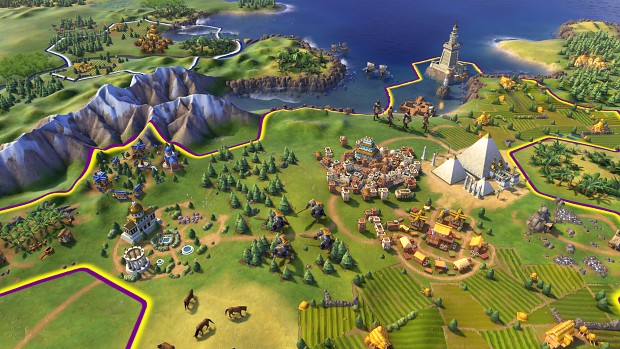



Instead of a diplomatic victory hinging on you making everyone like you, it depends on you making deals, competing in international events and wisely spending favour. "Yeah, Trajan, we're good buddies," I say as I spend all of my favour to neuter his army. In person it's all smiles and assurances, but the moment the World Congress convenes, I'm there with a knife behind my back. I've become a very two-faced leader, I confess. No matter the civ you're playing, you'll still need to spend a bit more time considering where to establish your first city. There are some unusual twists among the expanded roster that make them stand out even as the list grows massive. If you're playing as the Maori, for instance, you start at sea and get bonuses for every turn you choose to forgo putting down roots, while the Phoenicians get more flexibility later on, thanks to their ability to move their capital to any other city with their unique building. Straight away, Gathering Storm flings a few more decisions into the mix. The very first choice you make after picking a civ-there are eight new ones, and nine new leaders-is finding a hex to settle on, typically on your first turn. Foul weather, earthquakes and volcanic eruptions, however, can interfere with your empire-building plans whenever, so nature is a persistent adversary. It's not until resources like coal and oil start being exploited that CO2 emissions start to increase and transform the map, mostly through rising sea levels. For most of history, civs have barely any impact on the climate.


 0 kommentar(er)
0 kommentar(er)
